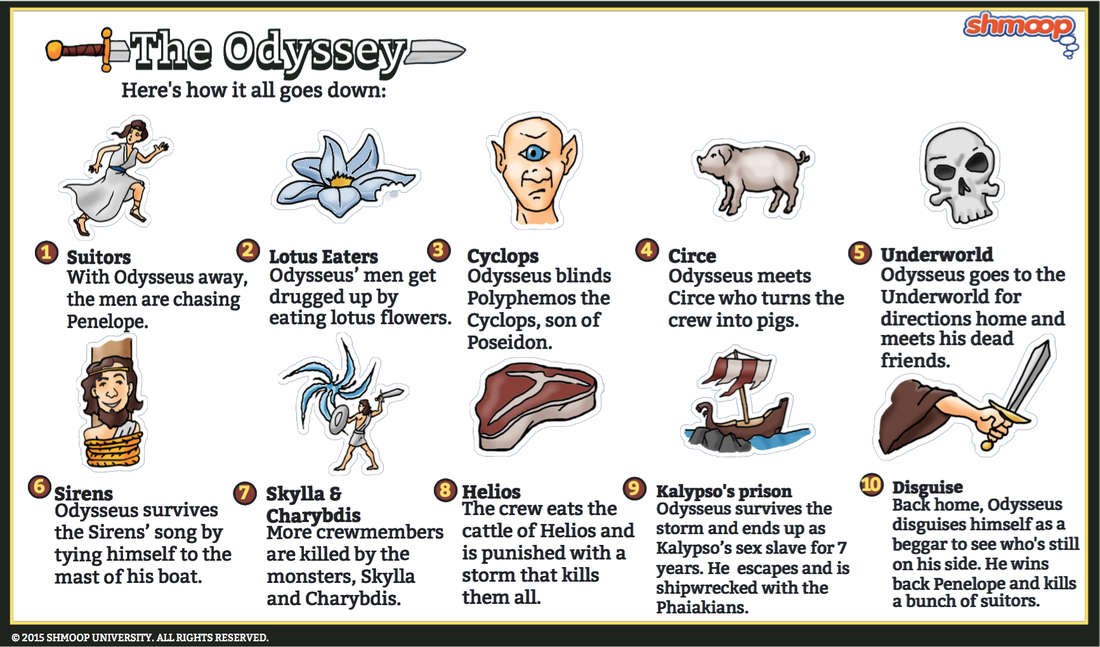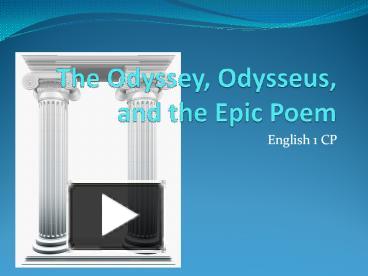3 Epic Lessons from Books 1-3 of The Odyssey

The Odyssey: A Timeless Epic Poem

The Odyssey, an ancient Greek epic poem attributed to Homer, is a timeless classic that has been captivating readers for centuries. The poem tells the story of Odysseus, a Greek hero who is trying to return home after the Trojan War. Books 1-3 of The Odyssey set the stage for Odysseus’ journey, introducing readers to the protagonist, the gods, and the challenges he will face on his way home. In this blog post, we will explore three epic lessons from Books 1-3 of The Odyssey.
Lesson 1: The Power of Hospitality

In Book 1 of The Odyssey, we are introduced to the concept of xenia, or hospitality, which is a central theme in ancient Greek culture. The poem highlights the importance of treating guests with respect and kindness, as seen in the character of Telemachus, Odysseus’ son, who welcomes the goddess Athena into his home. This lesson is reinforced in Book 2, where we see the contrasting behavior of the suitors, who are taking advantage of Odysseus’ absence and disrespecting his home and family.
The significance of xenia
Xenia was a vital part of ancient Greek culture, as it ensured the safety and well-being of travelers. By treating guests with hospitality, hosts demonstrated their respect for the gods and their commitment to upholding social norms. In The Odyssey, xenia is not just a social nicety; it is a moral imperative that has serious consequences when neglected.
📚 Note: The concept of xenia is still relevant today, reminding us of the importance of treating others with kindness and respect, regardless of their background or circumstances.
Lesson 2: The Dangers of Hubris

In Book 3 of The Odyssey, we meet the character of Nestor, an old king who is known for his wisdom and moderation. Nestor warns Telemachus about the dangers of hubris, or excessive pride, which can lead to downfall and destruction. This lesson is reinforced by the example of the suitors, who are blinded by their own arrogance and ignorance.
The consequences of hubris
Hubris is a central theme in The Odyssey, as it is in many ancient Greek tragedies. The poem shows how hubris can lead to chaos and destruction, not just for the individual, but also for their community and family. By contrast, humility and moderation are presented as essential virtues for achieving success and happiness.
🚨 Note: The lesson of hubris is still relevant today, reminding us of the dangers of excessive pride and the importance of staying humble and grounded.
Lesson 3: The Importance of Perseverance

Throughout Books 1-3 of The Odyssey, we see Odysseus’ son, Telemachus, struggling to come to terms with his father’s absence and the chaos that has engulfed his home. Despite the challenges he faces, Telemachus perseveres, seeking guidance from Athena and Nestor, and eventually embarking on a journey to find his father. This lesson is reinforced by the example of Odysseus himself, who faces numerous challenges on his journey home, but never gives up hope.
The power of perseverance
Perseverance is a key theme in The Odyssey, as it is in many epic poems. The poem shows how determination and resilience can help individuals overcome even the most daunting challenges. By persevering, Telemachus and Odysseus are able to achieve their goals and find their way home.
💪 Note: The lesson of perseverance is still relevant today, reminding us of the importance of staying committed to our goals and never giving up, even in the face of adversity.
What is the main theme of The Odyssey?

+
The main theme of The Odyssey is the journey of Odysseus as he returns home after the Trojan War, facing numerous challenges and struggles along the way.
Who is the author of The Odyssey?

+
The author of The Odyssey is attributed to the ancient Greek poet Homer.
What is the significance of xenia in The Odyssey?

+
Xenia, or hospitality, is a central theme in The Odyssey, highlighting the importance of treating guests with respect and kindness.
In conclusion, Books 1-3 of The Odyssey offer valuable lessons that are still relevant today. The power of hospitality, the dangers of hubris, and the importance of perseverance are all essential themes that can inform our own lives and experiences. By exploring these lessons, we can gain a deeper understanding of the timeless classic that is The Odyssey.



